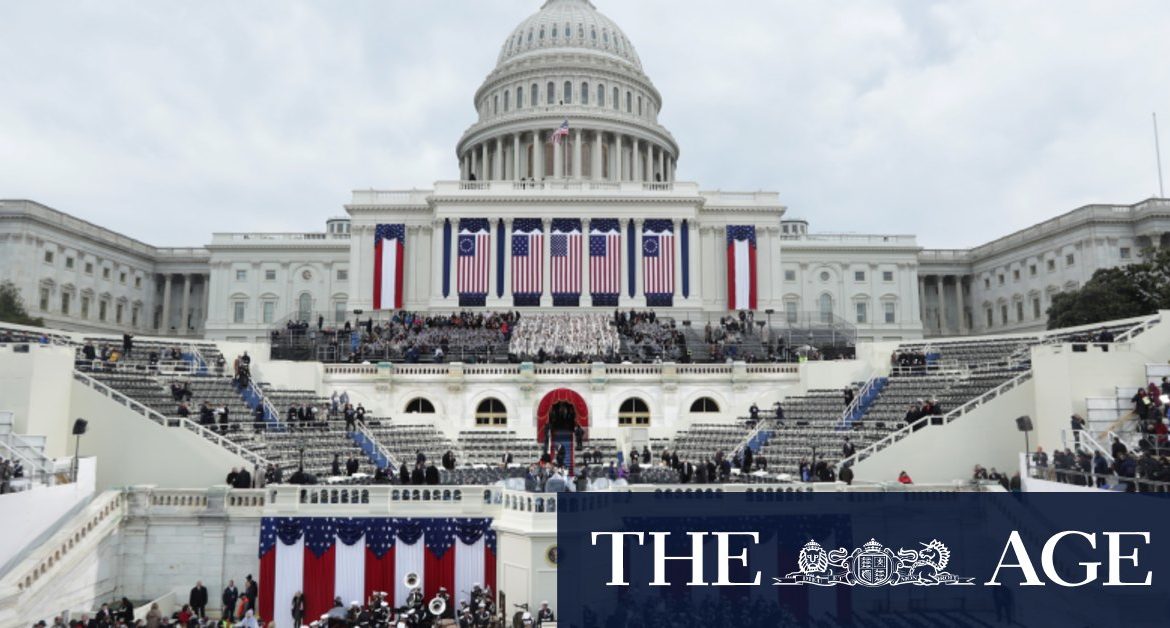Not even turmoil in Washington, where a Trump-supporting mob stormed the Capitol building and clashed with police, could derail investor enthusiasm.
But analysts have also warned that the stimulus momentum is unlikely to last, noting the Democrats’ dual victory also removes the components that propped up a goldilocks gridlock rally that followed the presidential election in November.
“Paradoxically, what looks like good news for the US economy is probably bad news for the relative performance of US stocks,” Janus Henderson’s UK-based multi‑asset team head Paul O’Connor said.
“That is because the prospect of higher corporate taxes, higher bond yields and concerns about regulatory intrusion will weigh most heavily on the media, technology and communications behemoths that dominate US indices.”
Nigel Green, chief executive and founder of deVere Group, in a note predicted investors would be jittery that control of the Senate could allow Biden to push through his agenda.
“Ultimately, the markets were hoping for a divided congress, as Biden winning the presidency brings stability and certainty, but with the Senate staying Republican to temper some of his agenda.”
However, JP Morgan Asset Management strategist Kerry Craig said the Democrats’ narrow lead means that the most progressive parts of President-elect Biden’s policy platform may struggle to come to fruition.
“Significant tax reform for companies or individuals are much more challenging to pass with such a narrow lead and the impact on corporate earnings may be less severe than feared,” he said.
“It will take some time to assess the real chance of higher taxes and the impact on corporate America as nothing is simple when it comes to US politics and its processes.”
Morningstar’s head of equities research Adam Flack said while it appeared likely Biden would increase the tax rate – potentially hitting the ASX’s US-focused earners such as CSL and Brambles – much of this risk appeared priced into the local market.
He therefore said there should be little change in valuations over the medium to long term, even though a brief period of volatility could be expected.
“From our perspective some of the offsetting factors about (Biden’s) reinvestment in infrastructure, a larger COVID response and stimulus package … it probably offsets some of that tax concern,” he said.
“When we think about what has happened in the presidential election and the senate run-off, I think it’s important to consider those long-term implications rather than trying to guess what tends to be almost a casino in the near term rather than a true weighting mechanism over the long run.”
Mr Flack added an element of risk remained for investors with both US and Australian markets still appearing overvalued, or “priced for perfection”.
“From here there’s more downside risk to upside risk,” he said.
“Stimulus would be great and getting vaccinations done faster would be great and so much of the recovery globally hinges on an improved vaccination distribution. And all that is good news if Democrats have full control of the government in the US.
“But there are still a lot of concerns. A lot of what we’ve seen from the strong market performance is… where else do you go? With a near interest rate you can’t save, you have to go up the risk curve to get any kind of yield.
“And we think that is artificially boosting some of the equity prices we’re seeing.”
Market Recap
A concise wrap of the day on the markets, breaking business news and expert opinion delivered to your inbox each afternoon. Sign up here.
Markets reporter for the SMH and The Age
Most Viewed in Business
Loading







